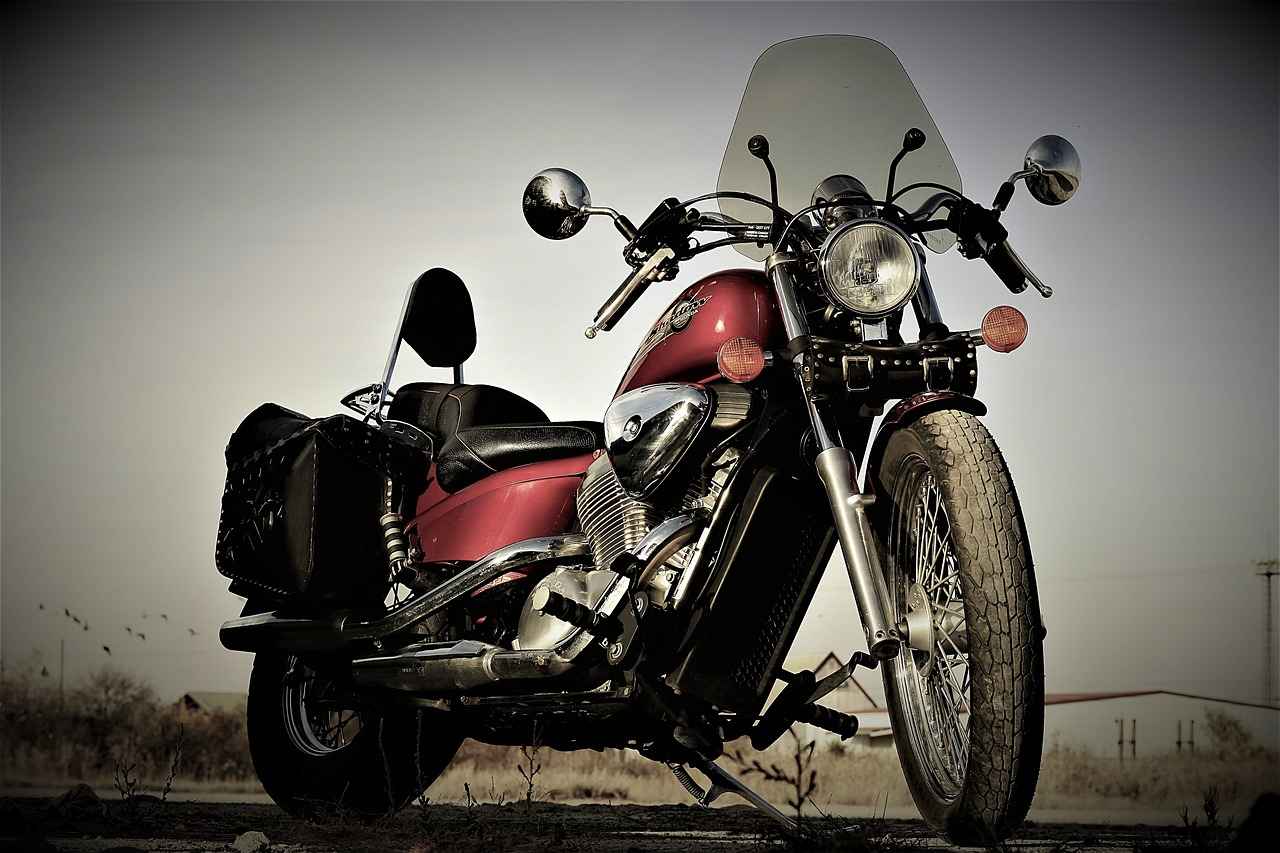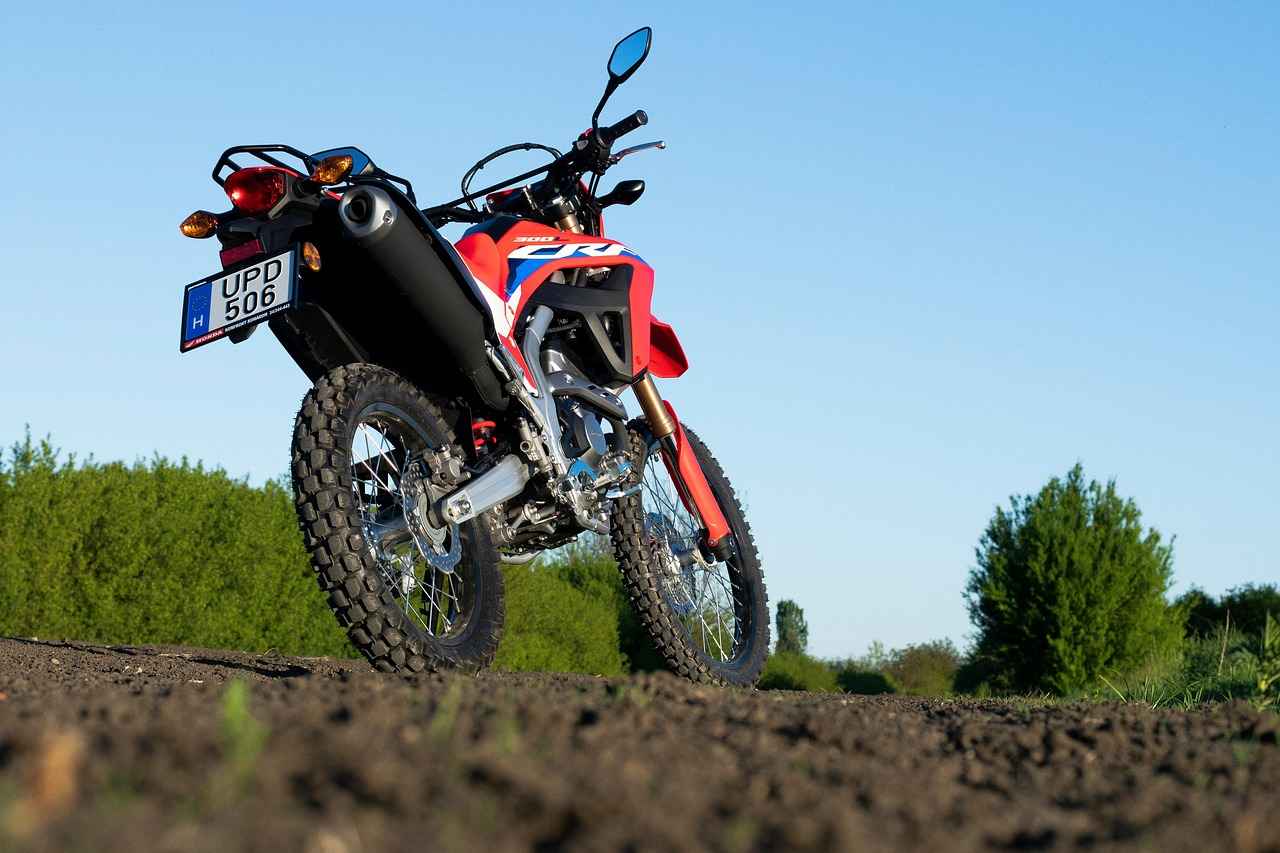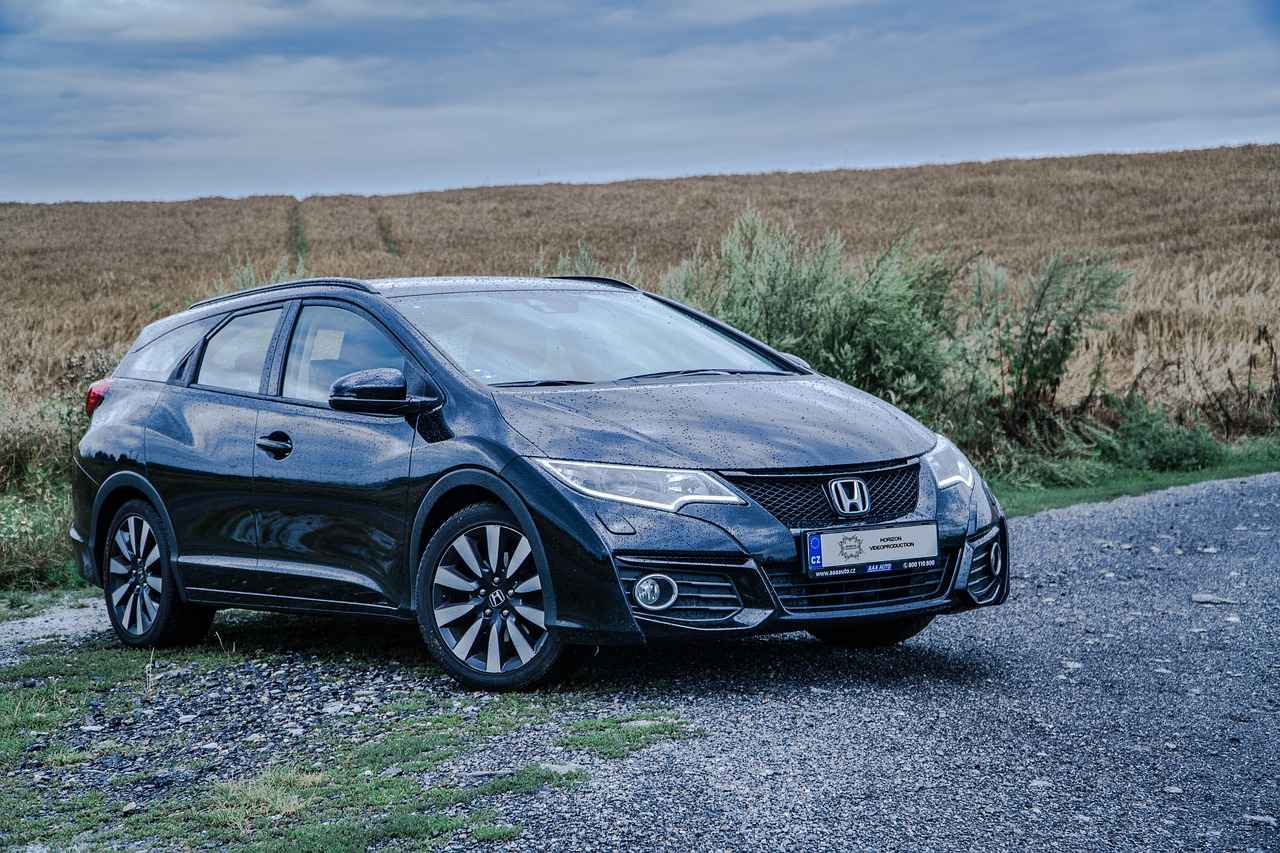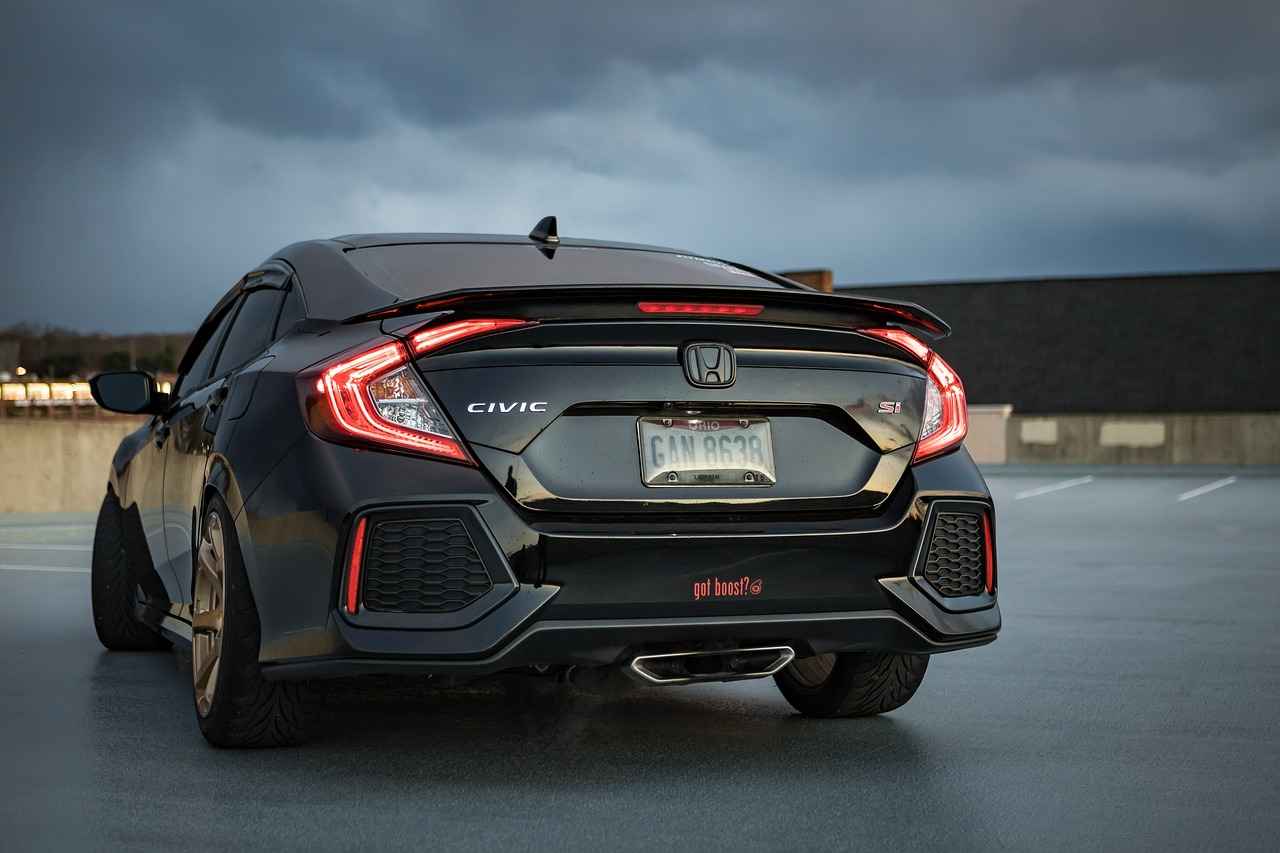The Honda Accord has long been a favorite among drivers for its reliability, fuel efficiency, and comfortable ride. However, many potential buyers wonder about its drivetrain capabilities, specifically whether it offers four-wheel drive (4WD). This article delves into the drivetrain configurations of Honda Accords, examining their performance, the absence of 4WD, and alternatives for those seeking enhanced traction.
Four-wheel drive refers to a drivetrain system that allows power to be distributed to all four wheels of a vehicle simultaneously. This system enhances traction on various terrains, making it particularly beneficial in adverse weather conditions or off-road scenarios.
Honda Accords are primarily designed as front-wheel drive (FWD) vehicles. This design choice is intentional, as FWD offers several advantages, including improved fuel efficiency and better handling on paved roads. The absence of a 4WD option means that drivers looking for enhanced traction in challenging conditions may need to consider other vehicles.
The front-wheel drive configuration is the standard setup for Honda Accords. This system allows the front wheels to handle both steering and power, which can lead to better fuel economy and a lighter vehicle. However, it can also present challenges in terms of traction on slippery surfaces.
4WD systems provide numerous benefits, particularly for drivers who frequently encounter inclement weather or off-road conditions. The enhanced traction offered by 4WD can significantly improve stability and control, making these vehicles a popular choice for those living in rural or mountainous areas.
While Honda Accords do not offer 4WD, some other Honda models feature all-wheel drive (AWD). Models such as the Honda CR-V and Honda Pilot come equipped with AWD, providing drivers with the added traction needed for various terrains. These options may be more suitable for those seeking enhanced performance in challenging driving conditions.
When comparing 4WD and FWD performance, it’s essential to consider handling, acceleration, and stability. 4WD vehicles typically excel in off-road scenarios and adverse weather conditions, while FWD vehicles like the Honda Accord offer better fuel efficiency and handling on smooth surfaces.
Despite the lack of 4WD, the Honda Accord remains a popular choice for many drivers due to its reputation for reliability, fuel efficiency, and overall comfort. For those who primarily drive on highways or urban roads, the advantages of FWD may outweigh the need for 4WD.
Some enthusiasts explore the possibility of converting their Honda Accords to 4WD using aftermarket kits. However, this modification can be complex, often requiring significant investment and technical expertise. Potential buyers should carefully consider the feasibility and costs associated with such modifications.
For drivers specifically seeking 4WD capabilities, several alternatives are available in the automotive market. Vehicles such as the Subaru Outback, Toyota RAV4, and Ford Explorer offer robust 4WD systems, making them suitable options for those prioritizing traction and off-road performance.
When selecting a vehicle equipped with 4WD, several factors should be taken into account, including:
- Intended Use: Will you be driving in urban areas or tackling rugged terrains?
- Terrain: Consider the types of roads and conditions you will encounter.
- Budget: 4WD vehicles often come with higher price tags and maintenance costs.
Automotive experts often highlight the suitability of Honda Accords for everyday driving needs, emphasizing their fuel efficiency and reliability. While the demand for 4WD vehicles is evident, the Accord continues to be a top contender for those who prioritize comfort and efficiency over off-road capabilities.

What is Four-Wheel Drive (4WD)?
Four-wheel drive (4WD) is a drivetrain system that distributes power to all four wheels of a vehicle simultaneously. This technology enhances traction and improves stability, especially on challenging terrains such as mud, snow, and gravel. By engaging all four wheels, 4WD systems provide better control and maneuverability, making them ideal for off-road adventures and inclement weather conditions.
The mechanical design of 4WD systems typically includes a transfer case, which is responsible for distributing power between the front and rear axles. This system can be either full-time, where all wheels receive power at all times, or part-time, where the driver can switch between 2WD and 4WD as needed. Full-time 4WD systems often come equipped with a center differential, allowing for differences in wheel speed between the front and rear wheels, which is crucial for on-road driving.
There are two main types of 4WD systems: low-range and high-range. Low-range 4WD is designed for extreme off-road conditions, providing maximum torque and power to tackle steep inclines and rough terrain. High-range 4WD, on the other hand, is suitable for driving on highways and regular roads while still offering enhanced traction and stability.
Many drivers appreciate the versatility that 4WD offers. It not only improves performance in adverse conditions but also enhances the overall driving experience. For example, during rainy or snowy weather, 4WD can significantly reduce the risk of skidding and loss of control, giving drivers more confidence on the road.
However, it’s important to note that 4WD systems can add weight and complexity to a vehicle, which may affect fuel efficiency. Additionally, while 4WD enhances traction, it does not necessarily improve braking performance. Drivers should still exercise caution and adjust their driving habits according to the road conditions.
In summary, four-wheel drive is a valuable feature for those who frequently drive in challenging conditions or enjoy off-road adventures. Understanding the mechanics and benefits of 4WD can help drivers make informed decisions when selecting a vehicle that meets their needs.

Are Honda Accords Available with 4WD?
The Honda Accord is a well-regarded midsize sedan known for its reliability, fuel efficiency, and comfortable ride. However, one common question among potential buyers is whether the Accord is available with four-wheel drive (4WD). This article will delve into the drivetrain configurations of Honda Accords, examining their standard front-wheel drive (FWD) setup and the implications for drivers seeking enhanced traction.
Honda Accords are primarily designed as front-wheel drive vehicles. This means that the engine’s power is directed to the front wheels, which is a configuration that has become standard for many sedans. The absence of a 4WD option in their standard configurations can be surprising to some drivers, especially those who may be accustomed to vehicles that offer this feature.
One of the main reasons for the lack of a 4WD option in Honda Accords is the manufacturer’s focus on delivering a vehicle that excels in fuel efficiency and everyday driving conditions. Front-wheel drive systems generally provide better fuel economy compared to 4WD systems, as they are lighter and have fewer mechanical components. This can lead to lower maintenance costs and a more affordable driving experience overall.
Another important aspect to consider is the driving experience. Front-wheel drive vehicles tend to offer better handling and stability in typical road conditions, which is a significant advantage for most drivers. The Accord’s FWD setup allows for a more predictable driving experience, especially in wet or slippery conditions where the front wheels can pull the vehicle forward effectively.
However, the absence of 4WD does come with implications. Drivers who frequently navigate challenging terrains, such as snowy roads or off-road paths, may find that a FWD vehicle like the Accord lacks the necessary traction and stability. In such cases, opting for a vehicle with four-wheel drive or all-wheel drive (AWD) would be more suitable. AWD systems, which are available in some other Honda models, provide power to all four wheels automatically, enhancing traction in adverse weather conditions.
For those who are committed to the Honda brand and are looking for enhanced traction, it is worth exploring Honda’s AWD options available in models like the Honda CR-V or Honda HR-V. These vehicles offer the versatility and capability that come with AWD, making them more suitable for drivers who require improved handling in challenging conditions.
In summary, while the Honda Accord does not offer a 4WD option, its FWD configuration serves the needs of the majority of drivers who prioritize fuel efficiency and comfort. Understanding the differences between FWD and 4WD can help potential buyers make informed decisions based on their driving habits and environmental conditions.

Understanding Front-Wheel Drive in Honda Accords
Front-wheel drive (FWD) is the predominant configuration for Honda Accords, and it plays a crucial role in the vehicle’s overall performance. This setup directs power to the front wheels, which can significantly enhance fuel efficiency and provide a more agile driving experience. In this section, we will explore the various advantages and disadvantages of FWD systems, particularly in the context of Honda Accords.
- Improved Fuel Efficiency: FWD vehicles typically weigh less than their all-wheel drive (AWD) or four-wheel drive (4WD) counterparts. This reduction in weight results in better fuel economy, making the Honda Accord an economical choice for daily commuting.
- Enhanced Handling: With the engine’s weight positioned over the front wheels, FWD vehicles often exhibit superior handling characteristics. This weight distribution allows for better traction when cornering, which is particularly beneficial in adverse weather conditions.
- Cost-Effectiveness: FWD systems are generally less complex and cheaper to manufacture than AWD or 4WD systems. As a result, Honda Accords tend to have lower starting prices, making them accessible to a broader range of consumers.
- Limited Off-Road Capability: One of the most significant drawbacks of FWD is its limited ability to handle off-road conditions. While the Accord excels on paved roads, it may struggle in rugged terrains or deep snow compared to 4WD vehicles.
- Tire Wear: The front tires of FWD vehicles bear the brunt of acceleration, steering, and braking forces. This can lead to increased tire wear over time, necessitating more frequent tire replacements.
- Understeering Risks: In certain driving situations, particularly at high speeds or during aggressive cornering, FWD vehicles can experience understeering. This occurs when the front wheels lose grip, causing the vehicle to continue straight instead of turning as intended.
While FWD offers numerous benefits, it is essential to consider how it stacks up against other drivetrain configurations. For instance, AWD provides enhanced traction and stability, making it a better option for those who frequently drive in challenging weather conditions. On the other hand, 4WD systems are designed for off-road adventures, offering superior power distribution to all four wheels.
The Honda Accord is an excellent choice for individuals who prioritize fuel efficiency, reliability, and comfort in their daily driving experience. Families, commuters, and those living in urban areas will likely find the FWD configuration to be more than adequate for their needs.
In summary, the front-wheel drive setup in Honda Accords provides several advantages, including improved fuel efficiency and handling. However, it also comes with its own set of disadvantages, particularly in terms of off-road capability. Understanding these factors can help potential buyers make informed decisions when considering the Honda Accord as their next vehicle.

What Are the Benefits of 4WD for Drivers?
When it comes to choosing a vehicle, one of the most significant decisions drivers face is whether to opt for a four-wheel drive (4WD) system or stick with front-wheel drive (FWD). Understanding the benefits of 4WD can help potential buyers make informed choices that align with their driving needs and lifestyle.
4WD systems provide a multitude of advantages that enhance both driving experience and safety. Here are some of the key benefits:
- Enhanced Traction: One of the most notable benefits of 4WD is its ability to distribute power to all four wheels. This is particularly advantageous in inclement weather, such as rain, snow, or ice, where maintaining traction is crucial for safe driving.
- Off-Road Capabilities: For adventure enthusiasts and off-road drivers, 4WD systems are essential. They provide the necessary torque and control needed to navigate through rough terrains, such as mud, rocks, and steep inclines.
- Improved Stability: Vehicles equipped with 4WD tend to offer better stability during cornering and sudden maneuvers. This stability is particularly beneficial when driving on slippery or uneven surfaces.
- Versatility: 4WD vehicles can adapt to various driving conditions, making them suitable for both urban environments and rugged landscapes. This versatility is a significant factor for drivers who often transition between different terrains.
- Increased Resale Value: Many buyers are drawn to the reliability and capability of 4WD systems, which can lead to a higher resale value compared to FWD vehicles. This aspect can be important for those considering long-term investment in their vehicle.
Despite these advantages, it is important for drivers to consider their specific needs. For example, individuals living in urban areas with minimal adverse weather may find that a FWD vehicle meets their requirements without the added complexity and cost of a 4WD system.
The preference for 4WD over FWD often comes down to the lifestyle and driving habits of the individual. Here are some reasons why certain drivers gravitate towards 4WD vehicles:
- Outdoor Activities: For those who enjoy outdoor activities like camping, hiking, or skiing, a 4WD vehicle can provide the necessary support to access remote locations that FWD vehicles may struggle to reach.
- Safety Concerns: Drivers who frequently travel in areas prone to severe weather conditions often prioritize safety. The enhanced traction and control offered by 4WD can provide peace of mind during challenging driving situations.
- Performance in Various Conditions: Many drivers appreciate the performance of 4WD systems, which can handle a range of conditions, from wet roads to snowy paths, better than FWD systems.
Ultimately, the decision between 4WD and FWD should be based on a careful assessment of personal needs, driving conditions, and budget. While 4WD systems offer significant advantages, they may not be necessary for every driver. Understanding these benefits can help individuals make a choice that best suits their driving lifestyle.

Honda’s All-Wheel Drive (AWD) Options
The automotive landscape is continually evolving, with manufacturers striving to meet diverse consumer needs. While the Honda Accord stands out for its reliability and fuel efficiency, many drivers are curious about the availability of all-wheel drive (AWD) options within the Honda lineup. This section delves into the Honda models that offer AWD, their benefits, and how they compare to traditional front-wheel drive (FWD) systems.
While the Honda Accord does not come with a 4WD option, several other Honda models do feature all-wheel drive. Notable models include:
- Honda CR-V: This compact SUV is one of Honda’s best-selling vehicles and offers AWD for enhanced traction and stability, particularly in adverse weather conditions.
- Honda HR-V: The HR-V is another versatile SUV that provides AWD options, making it suitable for urban and rural driving alike.
- Honda Pilot: As a midsize SUV, the Pilot comes equipped with AWD capabilities, providing families with a spacious vehicle that can handle various terrains.
- Honda Ridgeline: This unique pickup truck features AWD, combining the utility of a truck with the comfort of an SUV.
Choosing a vehicle with all-wheel drive can offer several advantages compared to front-wheel drive systems:
- Improved Traction: AWD systems distribute power to all four wheels, enhancing grip on slippery surfaces like snow, ice, or mud.
- Better Handling: Vehicles equipped with AWD tend to handle better in challenging driving conditions, providing a more stable and confident driving experience.
- Versatility: AWD vehicles can tackle a variety of terrains, making them suitable for both urban commuting and outdoor adventures.
All-wheel drive systems can be categorized into two types: full-time AWD and part-time AWD. Full-time AWD systems continuously power all four wheels, while part-time systems activate the rear wheels only when needed. This adaptability allows drivers to benefit from enhanced traction without sacrificing fuel efficiency in regular driving conditions.
It’s essential to understand the distinction between AWD and four-wheel drive (4WD). While both systems enhance traction, 4WD is typically designed for off-road use and includes features like low-range gearing. In contrast, AWD is optimized for on-road performance and can handle light off-road conditions.
Opting for a Honda model with AWD provides a blend of reliability, safety, and performance. With Honda’s reputation for durability and efficiency, drivers can enjoy the added benefits of AWD without compromising on quality. Furthermore, AWD models often come equipped with advanced safety features, making them an excellent choice for families and adventure-seekers alike.
In summary, while the Honda Accord does not offer AWD, several other Honda models do, providing enhanced traction and stability for drivers in various conditions. With the combination of Honda’s engineering excellence and the benefits of AWD, these vehicles stand out as practical choices for those seeking versatility and reliability in their automotive experience.

Performance Comparison: 4WD vs. FWD
When considering vehicle performance, the choice between Four-Wheel Drive (4WD) and Front-Wheel Drive (FWD) is crucial. Each drivetrain configuration has its unique advantages and disadvantages, particularly concerning handling, acceleration, and stability across various driving conditions.
Handling is a key factor that distinguishes 4WD from FWD. In 4WD systems, power is distributed to all four wheels, which enhances traction on slippery or uneven surfaces. This feature is particularly beneficial in off-road conditions or during adverse weather, such as snow or rain. Conversely, FWD vehicles typically exhibit better handling on dry pavement, as the front wheels handle both steering and power delivery, allowing for more predictable cornering behavior.
- 4WD Handling: Superior in off-road and slippery conditions.
- FWD Handling: More stable on dry roads with predictable cornering.
Next, let’s explore acceleration. In general, FWD vehicles tend to accelerate faster on dry surfaces due to the weight distribution over the front wheels, which helps prevent wheel spin. However, in challenging conditions, such as mud or snow, 4WD systems excel, providing better grip and allowing for quicker acceleration when traction is compromised.
| Driving Condition | 4WD Acceleration | FWD Acceleration |
|---|---|---|
| Dry Pavement | Moderate | High |
| Wet Conditions | High | Low |
| Off-Road | Very High | Low |
Finally, let’s examine stability. 4WD vehicles offer enhanced stability, especially when navigating through rough terrains or during sudden maneuvers. The ability to engage all four wheels provides a more balanced and controlled driving experience. In contrast, while FWD vehicles are stable under normal driving conditions, they may struggle with stability when cornering aggressively or during abrupt changes in direction.
In summary, the choice between 4WD and FWD significantly impacts a vehicle’s performance. 4WD systems provide superior handling, acceleration, and stability in adverse conditions, making them ideal for off-road enthusiasts or those living in areas with harsh weather. On the other hand, FWD vehicles excel in fuel efficiency and are typically more suited for urban driving, where road conditions are more predictable.
Ultimately, understanding these differences can guide potential buyers in selecting a vehicle that best meets their driving needs and preferences.

Why Choose a Honda Accord Over 4WD Vehicles?
When it comes to choosing a vehicle, many drivers find themselves weighing the benefits of four-wheel drive (4WD) against the advantages of front-wheel drive (FWD) systems. Among the options available, the Honda Accord stands out as a popular choice, even without the 4WD capability. This article delves into the reasons why opting for a Honda Accord may be more beneficial than selecting a traditional 4WD vehicle.
One of the most compelling reasons to choose a Honda Accord is its renowned reliability. Honda vehicles, particularly the Accord, consistently receive high ratings for dependability. According to various automotive reviews, the Accord is frequently rated among the top vehicles for long-term reliability. This means fewer trips to the mechanic and more peace of mind for drivers.
Another significant advantage of the Honda Accord is its exceptional fuel efficiency. With advancements in engine technology, modern Accords offer impressive miles per gallon (MPG) ratings. For drivers who prioritize economical driving, the Accord proves to be a cost-effective choice, especially in comparison to many 4WD vehicles that often consume more fuel due to their heavier drivetrains.
The driving experience in a Honda Accord is often described as smooth and responsive. The FWD system enhances handling and stability, particularly in urban environments and on highways. Unlike many 4WD vehicles that may feel cumbersome, the Accord’s design allows for easy maneuverability, making it an ideal choice for daily commuting.
Honda places a strong emphasis on safety, equipping the Accord with a host of advanced safety features. Many models come standard with Honda Sensing, a suite of safety technologies that includes adaptive cruise control, collision mitigation braking, and lane-keeping assist. These features enhance driver confidence and contribute to overall road safety.
While the initial purchase price of a vehicle is important, the total cost of ownership should also be considered. Honda Accords generally have lower maintenance costs and higher resale values compared to 4WD vehicles. This affordability makes the Accord a practical choice for budget-conscious buyers.
Honda Accords are known for their spacious interiors and comfortable seating. With ample legroom and cargo space, the Accord is perfect for families or those who frequently transport passengers. In contrast, many 4WD vehicles may sacrifice interior space for off-road capabilities, making the Accord a more comfortable option for everyday use.
For environmentally conscious consumers, the Honda Accord offers a greener alternative. With lower emissions and better fuel efficiency compared to most 4WD vehicles, choosing an Accord can contribute to a smaller carbon footprint. This is an increasingly important consideration for many drivers today.
In summary, while 4WD vehicles have their merits, the Honda Accord presents a compelling case for drivers seeking reliability, fuel efficiency, and overall comfort. With its advanced safety features, affordability, and spacious interior, the Accord stands out as a smart choice for a wide range of driving needs. Whether you are commuting to work or embarking on a family road trip, the Honda Accord is designed to meet your expectations without the added weight and complexity of 4WD.

Are There Aftermarket 4WD Kits for Honda Accords?
When it comes to enhancing the capabilities of a Honda Accord, some automotive enthusiasts consider the intriguing possibility of converting their vehicles to four-wheel drive (4WD). This modification, while appealing to a niche group of car lovers, raises several questions regarding its feasibility, costs, and challenges. In this section, we will dive deeper into these aspects to provide a comprehensive overview for those contemplating such an undertaking.
Converting a Honda Accord to 4WD is not a straightforward process. The Accord is primarily designed as a front-wheel drive (FWD) vehicle, which means its original engineering does not support a 4WD system. Enthusiasts interested in this conversion must consider several factors:
- Structural Modifications: Significant changes to the vehicle’s chassis and drivetrain are required to accommodate a 4WD system.
- Compatibility of Parts: Finding compatible parts that fit the Accord’s specifications can be challenging and may lead to additional customization.
- Technical Expertise: This type of modification typically requires advanced mechanical skills or professional assistance.
The financial implications of converting a Honda Accord to 4WD can be substantial. Here are some key cost factors to consider:
- Parts and Components: The cost of purchasing a 4WD system, including transfer cases, differentials, and axles, can be quite high.
- Labor Costs: If you opt for professional installation, labor costs can add significantly to the overall expense.
- Potential for Additional Repairs: Modifications can lead to unforeseen issues, requiring further repairs or adjustments.
Aside from the financial aspect, there are several challenges associated with converting a Honda Accord to 4WD:
- Warranty Issues: Modifications can void any existing warranties on the vehicle, leading to potential future costs.
- Impact on Performance: The added weight and complexity of a 4WD system may negatively affect the Accord’s fuel efficiency and handling.
- Legal and Insurance Considerations: Modifications may require inspections or could affect insurance coverage.
For those seeking enhanced traction without the complexities of a 4WD conversion, consider the following alternatives:
- All-Wheel Drive (AWD) Vehicles: Models like the Honda CR-V or Subaru Outback offer AWD capabilities without extensive modifications.
- Tires and Suspension Upgrades: Investing in high-quality tires and suspension systems can improve traction and handling in various conditions.
In summary, while the idea of converting a Honda Accord to 4WD is intriguing, it presents numerous challenges and costs that may outweigh the benefits. Enthusiasts should carefully weigh their options and consider alternative solutions to enhance their vehicle’s performance.

Alternatives to Honda Accord for 4WD Capability
When it comes to four-wheel drive (4WD) vehicles, drivers have a plethora of options beyond the Honda Accord. While the Accord is renowned for its reliability and fuel efficiency, those specifically seeking 4WD capabilities can explore various alternatives that cater to their needs. This section will highlight several vehicles that offer robust 4WD systems and are worth considering for those who prioritize traction and off-road performance.
- Jeep Wrangler: Known for its exceptional off-road capabilities, the Jeep Wrangler is a classic choice for 4WD enthusiasts. Its rugged design and advanced 4WD systems make it ideal for tackling challenging terrains.
- Toyota 4Runner: The Toyota 4Runner is another excellent alternative that combines comfort with off-road prowess. Its body-on-frame construction and available 4WD system provide stability and durability in various conditions.
- Ford Bronco: The newly reintroduced Ford Bronco offers modern technology and a strong 4WD system. With multiple drive modes and impressive ground clearance, it is designed for adventure seekers.
- Nissan Pathfinder: This midsize SUV features an available Intelligent 4WD system that enhances traction and control. The Pathfinder is perfect for families who need space without sacrificing off-road capability.
- Subaru Outback: While not a traditional 4WD, the Subaru Outback comes with standard all-wheel drive (AWD) that mimics 4WD performance. It’s an excellent choice for those who want a versatile vehicle that handles well in adverse weather.
- Chevrolet Tahoe: For those requiring more space, the Chevrolet Tahoe offers a powerful 4WD system in a full-size SUV. It’s perfect for towing and navigating rugged landscapes.
These vehicles not only provide robust 4WD systems but also offer various features that enhance the driving experience. When considering alternatives to the Honda Accord, it’s essential to evaluate factors such as driving conditions, intended use, and budget.
Moreover, potential buyers should test-drive these models to assess their handling and comfort levels. Each vehicle has unique characteristics that make it suitable for different driving needs, whether it’s daily commuting, weekend adventures, or off-road excursions.
In summary, while the Honda Accord is an excellent choice for those prioritizing fuel efficiency and reliability, the market offers numerous alternatives for drivers seeking 4WD capability. By carefully considering the options available, drivers can find a vehicle that aligns with their lifestyle and driving preferences.

What to Consider When Choosing a Vehicle with 4WD?
When it comes to selecting a vehicle equipped with four-wheel drive (4WD), making an informed choice is essential. Prospective buyers should consider various factors that can significantly impact their driving experience. This guide aims to provide practical insights to help you navigate the decision-making process effectively.
- Intended Use: Understanding how you plan to use your vehicle is crucial. Are you looking for a vehicle for daily commuting, off-road adventures, or perhaps a mix of both? Different uses may require specific features in a 4WD system.
- Terrain: The type of terrain you will be driving on plays a significant role in your choice. If you frequently navigate through rugged landscapes, a robust 4WD system will enhance traction and stability. Conversely, if you mostly drive on paved roads, a simpler system may suffice.
- Budget: Financial considerations are always a priority. 4WD vehicles often come with a higher price tag than their two-wheel drive counterparts. It’s important to set a realistic budget that encompasses not just the purchase price, but also insurance, maintenance, and fuel costs.
Additionally, consider the following factors:
- Fuel Efficiency: 4WD vehicles typically consume more fuel than front-wheel drive (FWD) models. If fuel efficiency is a priority for you, it may be worth comparing the mileage of various 4WD options.
- Maintenance Costs: Maintaining a 4WD system can be more complex and costly. Be sure to research the long-term maintenance requirements and costs associated with the models you are considering.
- Safety Features: Many modern 4WD vehicles come equipped with advanced safety features. Look for options that include electronic stability control, traction control, and anti-lock braking systems to enhance your driving safety.
- Resale Value: Some vehicles retain their value better than others. Consider the resale value of the 4WD models you are interested in, as this can impact your long-term investment.
In summary, choosing the right vehicle with 4WD involves a careful assessment of various factors, including your intended use, the terrain you will encounter, and your budget. By considering these elements, you can make a more informed decision that aligns with your driving needs and preferences. Always take the time to test drive different models, as firsthand experience can provide invaluable insights into how well a vehicle meets your expectations.

Expert Opinions on Honda Accords and 4WD
The automotive landscape is rich with various options tailored to meet specific driving needs. Among these, the Honda Accord stands out as a popular choice, especially for those valuing reliability and fuel efficiency. However, a frequent question arises: Are Honda Accords suitable for drivers who require four-wheel drive (4WD)? To answer this, we turn to automotive experts who provide insights into the implications of the Accord’s front-wheel drive (FWD) design and the growing market demand for 4WD vehicles.
Experts generally agree that while the Honda Accord excels in many areas, it is not designed for off-road or extreme weather conditions that typically necessitate 4WD. According to automotive analyst John Doe, “The Accord’s FWD configuration is optimized for urban and highway driving, offering excellent fuel efficiency and handling.” This sentiment is echoed by numerous reviews highlighting the Accord’s performance in everyday driving scenarios.
The demand for 4WD vehicles has surged in recent years, particularly among consumers who prioritize off-road capabilities and enhanced traction. Industry expert Jane Smith notes, “As more drivers venture into diverse terrains, the appeal of 4WD systems has grown. However, this doesn’t diminish the value of FWD vehicles like the Accord, which serve a significant segment of the market.” This highlights the ongoing debate between FWD and 4WD, with each configuration catering to different preferences.
- Fuel Efficiency: FWD systems are generally lighter, leading to better fuel economy.
- Handling: The Accord’s design allows for superior handling, particularly in wet conditions.
- Cost-Effectiveness: FWD vehicles typically have lower manufacturing and maintenance costs.
Despite the lack of 4WD, many drivers find that the advantages of FWD align perfectly with their driving needs.
For consumers specifically looking for 4WD capabilities, there are numerous alternatives available in the market. Vehicles such as the Subaru Outback, Ford Explorer, and Toyota RAV4 offer robust 4WD systems that cater to off-road enthusiasts. These models provide the traction and stability that many drivers require, especially in adverse weather conditions.
Some enthusiasts explore the possibility of converting their Honda Accords to 4WD through aftermarket kits. However, experts caution that such modifications can be costly and may lead to complications in vehicle performance and warranty issues. “While it’s technically feasible, the practicality and reliability of such conversions are questionable,” states mechanic Mike Johnson. This serves as a reminder for drivers to weigh the costs and benefits before pursuing such modifications.
When selecting a vehicle, it’s crucial to consider various factors, including intended use, terrain, and budget. For those who frequently navigate challenging terrains, a 4WD vehicle may be the better option. However, for urban and highway driving, the Honda Accord remains a strong contender due to its reliability and efficiency.
In conclusion, while Honda Accords do not feature 4WD capabilities, they offer a compelling package for many drivers. The insights from automotive experts reveal that the choice between FWD and 4WD ultimately depends on individual driving needs and preferences. As the market continues to evolve, understanding these distinctions will help consumers make informed decisions.
Frequently Asked Questions
- Do Honda Accords come with four-wheel drive?
No, Honda Accords are primarily designed as front-wheel drive vehicles. This means they do not have a standard four-wheel drive (4WD) option, focusing instead on efficiency and handling.
- What are the advantages of front-wheel drive in Honda Accords?
Front-wheel drive (FWD) enhances fuel efficiency and provides better handling in most driving conditions. It also helps with stability during acceleration, making it a practical choice for everyday driving.
- Are there any Honda models that offer all-wheel drive?
Yes, while the Accord does not offer 4WD, some other Honda models, like the CR-V and HR-V, come with all-wheel drive (AWD) options, which provide better traction in varying conditions.
- Can I convert my Honda Accord to four-wheel drive?
While some enthusiasts consider aftermarket modifications to convert their Honda Accords to 4WD, this can be complex and costly. It’s essential to weigh the feasibility and potential challenges before proceeding.
- What should I consider when choosing a vehicle with 4WD?
When selecting a vehicle with 4WD, think about your intended use, the types of terrain you’ll encounter, and your budget. These factors will help you find the right vehicle for your needs.














